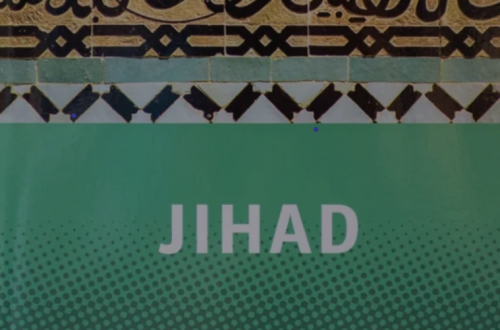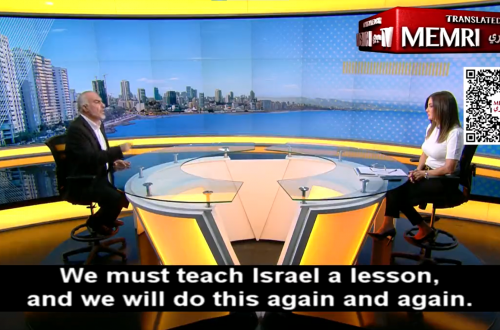This is a guest post by George Readings
I recently blogged about the individuals Queen Mary’s ISOC has been choosing to invite to speak. At the end of the piece, I suggested that the NUS or FOSIS, the Federation Of Student Islamic Societies, should encourage the ISOC to invite speakers who condemned all forms of terrorism, did not spread outlandish conspiracy theories and promote community cohesion. David T responded in skeptical terms:
But FOSIS is hardly going to lay down the law to QMUL’s ISOC, considering they lay on events with similarly vicious speakers.
Now, there are people who condemn FOSIS for its close links to the Muslim Brotherhood and because it affiliated to the MCB, who don’t exactly have the best reputation at the moment.
And there are those who point to FOSIS’s support for overturning the NUS ban on Hizb ut-Tahrir.
However, it is in the nature of student organisations that their leadership changes regularly, and therefore we shouldn’t necessarily judge FOSIS today by what they were doing in 2006. Things can change rapidly; just look at what their spokesman said in 2005:
Hasan Salim Patel, the spokesman for the Federation of Student Islamic Societies, which represents more than 90,000 university students in the United Kingdom and the Republic of Ireland, said a National Union of Students ban on extremist groups had been successful in dissipating the visible presence of organisations such as Hut and Al-Muhajiroun, but covert fundamentalism still existed.
“These people are not easy to trace but they can be an active source of inspiration for some students,” he said. “Campuses have people with radical views, they are a vocal minority but not an organised entity.
“This is not a big-scale thing – they do not have a head office or someone out there saying come and join us. It is working underground, as it was 10 years ago. It is a few individuals meeting in a room somewhere. The more extremist views are more likely to come out of the old polytechnics.”
Which is rather different to FOSIS’s current state of denial about extremism on university campuses and defence of people wanted for terrorism.
So I gave FOSIS the benefit of the doubt, but David T’s words were swiftly proved correct.
Earlier today I received an invitation to FOSIS’s 2009 Annual Conference, which is being held at the University of Leicester on 20th June.
Join FOSIS this summer in a one day extravaganza full of education, enlightenment and eemaan. The FOSIS Annual Conference 2009 will take place at the University of Leicester on Saturday 20th June 2009. A jam packed day full of lectures by inspirational speakers, interactive workshops, some entertainment, and great food; a combination of the finest things every Muslim student could ask for.
The Conference is a chance for Muslims students in different regions from across the UK and Ireland to engage with one another on a variety of topics, along with discussing and debating potential prospects for the future with regards to the issues we are being challenged with today. This is the ONLY national conference based on and for Muslim students, and is always a memorable event.
Amongst the proceedings, some of the highlights will include an opportunity for attendees to listen to speakers such as Shaykh Riyadh ul Haq, Shaykh Haitham al-Haddad and Shaykh Ahmed Babikr… plus lots more. An event not to be missed.
“Education, enlightenment and eemaan [faith]” – it sounds great, but the list of invited speakers suggests otherwise. These are not just “equally as vicious speakers” as the ones invited to Queen Mary’s, in the case of Haitham al-Haddad it’s the same speaker.
In my last post I included a video of Haitham al-Haddad supporting Hamas. Here’s another one:
He thinks it is “very funny” (7:50) that somebody would consider him an “extremist” for supporting Hamas. Yes, hilarious.
Here he is talking about the proposed Muslim Marriage Contract.
Ed Husain wrote this on the topic:
The new Muslim marriage contract sought to update and develop fiqh, or Muslim personal jurisprudence, by shifting the power balance in a marriage to empower women to trigger divorce, feel safe from rape or abuse, prevent husbands from taking second wives, and set up accommodation separated from a husband’s parents.
All common sense, one would have thought. It went further. Witnesses at wedding ceremonies could be women and even non-Muslim, since the Qur’an is gender and faith neutral on this issue. And a Muslim woman does not need a wali, or male guardian (based on Hanafi school of Islamic law, to which the majority of Britain’s Muslims adhere).
Which all sounds great, but Haitham al-Haddad disagrees (9:26 onwards):
Any person who is trying to change Islam from a western point of view, or he is living in the west or is changing Islam to fit into the western lifestyle […] don’t believe that he is trying to find solutions for Muslims’ problems. Don’t believe that he is trying to follow certain opinions carried out by certain scholars or by certain school of thoughts. No. He is colonised or he is defeated or he is an hypocrite person.
Then he continues here:
[2:25] I am really very very shocked that a Muslim […] let alone someone who has little knowledge […] he introduces something […] that goes against shari’a, that goes against the law of Allah jalla wa ta’aalaa claiming that this is better for our situation.
There are not al-Haddad’s only disquieting views. Here he is discussing “so-called western values” (2:06):
When they talk about tolerance, either they talk about tolerance that serves them […] serves the west, or they are talking about double standards.
And then, he claims, media frenzies, like that seen in reaction to the Archbishop’s comments on Shari’a, are “worse than violence” (8:30 onwards):
Why do we consider some violent act carried out by angry Muslims when they try to protest against some of the […] recent cartoons in Denmark […] a barbaric reaction and we don’t consider the ongoing onslaught against these comments […] a barbaric reaction.
Moving on to Riyadh ul Haq. You will remember him for his sermon on “Jewish Fundamentalism” and his less-than-moderate views on violence:
In one talk, Mr ul Haq tells British Muslims that he is “not suggesting that we should rise here – I’m sure we are all sensible enough to know that”. He also pledges that “we will not endanger the life of any innocent person”.
A sermon about Israel, however, prompts cries of “Allahu akbar!” [God is greater] from the congregation when Mr ul Haq calls on them to “be willing to sacrifice anything that may be required of us”. The al-Aqsa Mosque in Jerusalem must be liberated and “we are willing to die in the process”. When called upon, “we will consider it an honour and a privilege to shed our blood”. Ultimately, Allah has promised that Islam will “prevail over all other religions, even though the disbelivers may dislike it”. Mr ul Haq says: “Do not despair. Victory is ours. It’s just a question of time.”
On Jews:
They’re all the same. The Jews don’t have to be in Israel to be like this. It doesn’t matter whether they’re in New York, Houston, St Louis, London, Birmingham, Bradford, Manchester. They’re all the same. They’ve monopolised everything: the Holocaust, God, money, interest, usury, the world economy, the media, political institutions . . . they monopolised tyranny and oppression as well. And injustice
On the Taleban:
The only group of people upon the earth who are establishing the Sharia and the law of Allah
And on integration:
Allah has warned us in the Koran, do not befriend the kuffar [unbelievers], do not align yourselves with the kuffar
Which leaves Ahmed Babikr.
He was originally named as one of the advisers of the Quilliam Foundation, but since appears to have distanced himself from them. He is also the Imam at Yusuf Islam’s Islamia Primary School in north London.
Moreover, he seems to be exactly the kind of person you would hope FOSIS would invite to address their annual conference. Here he is speaking in Birmingham as part of the “Just Enough Religion to Hate” tour with Hamza Yusuf:
[12:00] If you are a human being and claiming to be a Muslim, a mu’min [believer], and you are claiming to be a Sufi or following in the path of Tasawwuf [Sufism], and you are not doing good for mankind, then there’s no goodness in you because a Muslim by nature is always thinking of others before he thinks of himself. […]
Rasul Allah Salla Allahu ‘alayhi wa sallam said “[…] None of you will become a true believer until you love for your brother what you love for yourself.” Many scholars think about the Umma of the Muslims who are embracing Islam. I think of this hadith in the […] wider sense because every son of Adam, every daughter of Adam is my sister and brother in humanity and the best I can hope for them is “La Ilaha illa Allah” [There is no god but God …]
If I wish for some of them to die and I am happy about it, then there is something wrong with me.
He also set up Ulfa Aid, which distributes food and water to refugees in Sudan and other places around the world. Amongst other activities, it has joined City Circle in organising an event to raise funds for Darfur.
Babikr would appear to be an admirably pious and generous man. His message of a common humanity is highly laudable, and it contrasts markedly with the views expressed by the other two guests.
Which is all wonderful, but one non-nutter speaker out of three is simply not good enough.
FOSIS has made clear that it knows some moderates, but it would rather invite people who spread anti-Semitism, reject women’s rights, discourage Muslims from integrating with non-Muslims and support the Taleban and Hamas.
And yet the government, despite pressure from some quarters, continues to deal with FOSIS.
In November last year, the Department of Innovation, Universities and Skills, in collaboration with FOSIS and the NUS, launched a study “exploring the views and attitudes of Muslim students in England.”
The survey will provide a comprehensive overview of the attitudes and views, as well as experiences and needs, of Muslim students in Higher Education on a range of policy areas of relevance including (but not limited to):
o Faith on campus
– Identity and integration of Muslim students
– Facilities and Services
– Extremism
– Organisations, the government and media
The government is trying to investigate “integration of Muslim students” and “extremism” through working with an organisation which invited to address its annual conference one man who teaches “do not befriend the Kuffar” and another who thinks Hamas’s ideology is “essentially an Islamic ideology.”
Do they have no sense of irony?
FOSIS has proven, yet again, that it is far from being a moderate organisation representing all Muslim students, and yet the government continues to treat it as though it is. Why?
Habibi adds: Or has the FOSIS-DIUS project been kicked into the long grass? When I wrote this post about the project in November, the DIUS planned to choose a service provider for the project and start work that month. However, it appears that no contractor has been selected yet.
If the government has decided not to work with FOSIS, this should be public knowledge, just as we all know about the split with the MCB. If instead it is indeed working with FOSIS, well, as George rightly asks, why?


